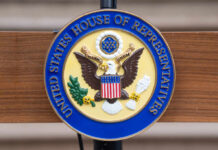
The European Union (EU) recently struck a deal on legislation governing the use of artificial intelligence (AI), including regulating AI platforms such as ChatGPT, which have been increasingly used by governments worldwide.
European Union Agrees on Landmark Regulations for Artificial Intelligence
The pioneering framework comes amid growing fears about the destructive potential of AI.https://t.co/D8wtKaUyPR
— The Epoch Times (@EpochTimes) December 9, 2023
With the agreement, the international government body has become the world’s first major power to pass laws governing AI. Such a consensus was reached after nearly 24 hours of rigorous debate between lawmakers of the European Parliament and the EU.
The European Parliament and the EU are set to roll out more details about their AI-governing agreement in the forthcoming days.
“Europe has positioned itself as a pioneer, understanding the importance of its role as a global standard setter. This is, yes, I believe, a historical day,” European Commissioner Thierry Breton said during a recent press conference.
An Italian member of the European Parliament (MEP), Brando Benifei, said that although the negotiation process was “long and intense,” it “was worth it.” He added that the agreement would prioritize the “rights and freedoms” of individuals.
“Correct implementation will be key — the Parliament will continue to keep a close eye, to ensure support for new business ideas with sandboxes, and effective rules for the most powerful models,” the Italian official continued.
As a result of the agreement, AI platforms such as ChatGPT and systems will soon be required to comply with laws before being allowed for public use. AI must comply with EU copyright law and explicitly detail the content it uses for training.
As part of the agreement, the European Parliament will ban the use of AI-driven real-time surveillance. It would only allow governments to pursue such a measure in certain crimes or to prevent possible terrorist attacks.
The head of the European office of the Computer and Communications Industry Association, Daniel Friedlaender, said the agreement still lacks details.
“Today’s political deal marks the beginning of important and necessary technical work on crucial details of the AI Act, which are still missing,” Friedlaender said.
The AI-governing agreement comes amid concerns that the ability of AI systems like ChatGPT to produce human-like pictures, text and songs, could jeopardize the working class, privacy and copyright protection.



























